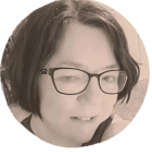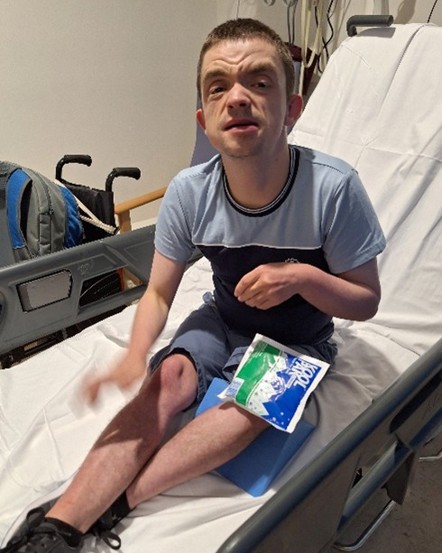Look at His Face

Jennifer Arnold
I’m passionate about raising awareness about disability issues through education and outreach. When I’m not wearing my writer hat, I’m usually trying ...
“Look at his face!” the little girl in the waiting area of the doctor’s office exclaimed rather loudly and then started to giggle.
Her mother (or caregiver), who had been checking out of their appointment, mumbled something that sounded like, “Oh. Yeah” and hustled towards the exit with the little girl, who was still looking over her shoulder at my son.
My son, who was happily playing with the toys strewn about the waiting area, completely oblivious to what had just transpired.
In a way, I envied him.
My son has a rare genetic condition called Oto Palatal Digital Syndrome. His facial features are a little different, despite the two traumatic jaw surgeries he has had.
I also have OPD, and so does my 12-year-old daughter. We have had our share of awkward encounters; staring, whispering and pointing.
I have the unique perspective of experiencing this on both ends: not only as someone with a facial difference but as the parent of kids with craniofacial issues as well
Dealing with it as a mom is a lot harder.
The Mama bear instinct in me wants to rage at whoever is poking fun of my child, but the logical part of me sees it as an opportunity to educate.
The mom in the doctor’s office scurried away before I could even say “Hi!”, but I’m not judging her. At best, she may have just been in a hurry.
The worst-case scenario is that she was extremely embarrassed, had no clue what to say, and just wanted to get the Hell out of there.
I totally get it.
My kids have said some mortifying things in public that have made me wish I had the power to make myself invisible.
I too have hurried my child away for fear they would make an already embarrassing situation worse, or simply because I had no idea how to respond.
Then one day when my son was an infant, a little boy approached us at a school event for one of my older kids, and asked rather bluntly (as kids tend to do) “What’s wrong with his face?”
I tried to explain his genetic condition to a five-year-old the best way I knew how, after which he pointed at my son’s tracheostomy tube and asked: “What’s that thing?”
“That’s called a trach. He can’t breathe from his nose and mouth as we can, so this helps him to breathe.”
“Oh. Ok.”
“His name is Chance, and he’s 9 months old.”
This little guy talked to us for a good five minutes before he ran off to join his friends, and I realized that although his approach was no-nonsense, he was genuinely curious and interested.
Now when I catch people staring, I wave and/or say Hello. Sometimes they get embarrassed and look away, but many times it has opened a door for a conversation.
There will always be awkward moments as a parent of a child with special needs.
Along with OPD, my daughter also has autism, and we have had more than our fair share of public meltdowns. Many times, I use humor to deal with stressful situations, and these are no exception.
I’ve led her by the hand, wailing and screaming, through the grocery store singing the theme to “Mr. Rodger’s Neighborhood” loud enough for the people who were staring at us to hear.
“It’s a beautiful day in this neighborhood… It's a neighborly day in this beauty wood….won’t you be my neighbor..”
Several people chuckled; the ice was broken.
Sometimes it’s hard to hold back because people can say some ignorant and judgemental things.
I still have my moments, but over time the “Mama Bear” instinct has given way to a need to advocate and educate so that when people see someone with a facial difference, they will take the time to learn about and get to know the person and hopefully realize they are not that different after all.


